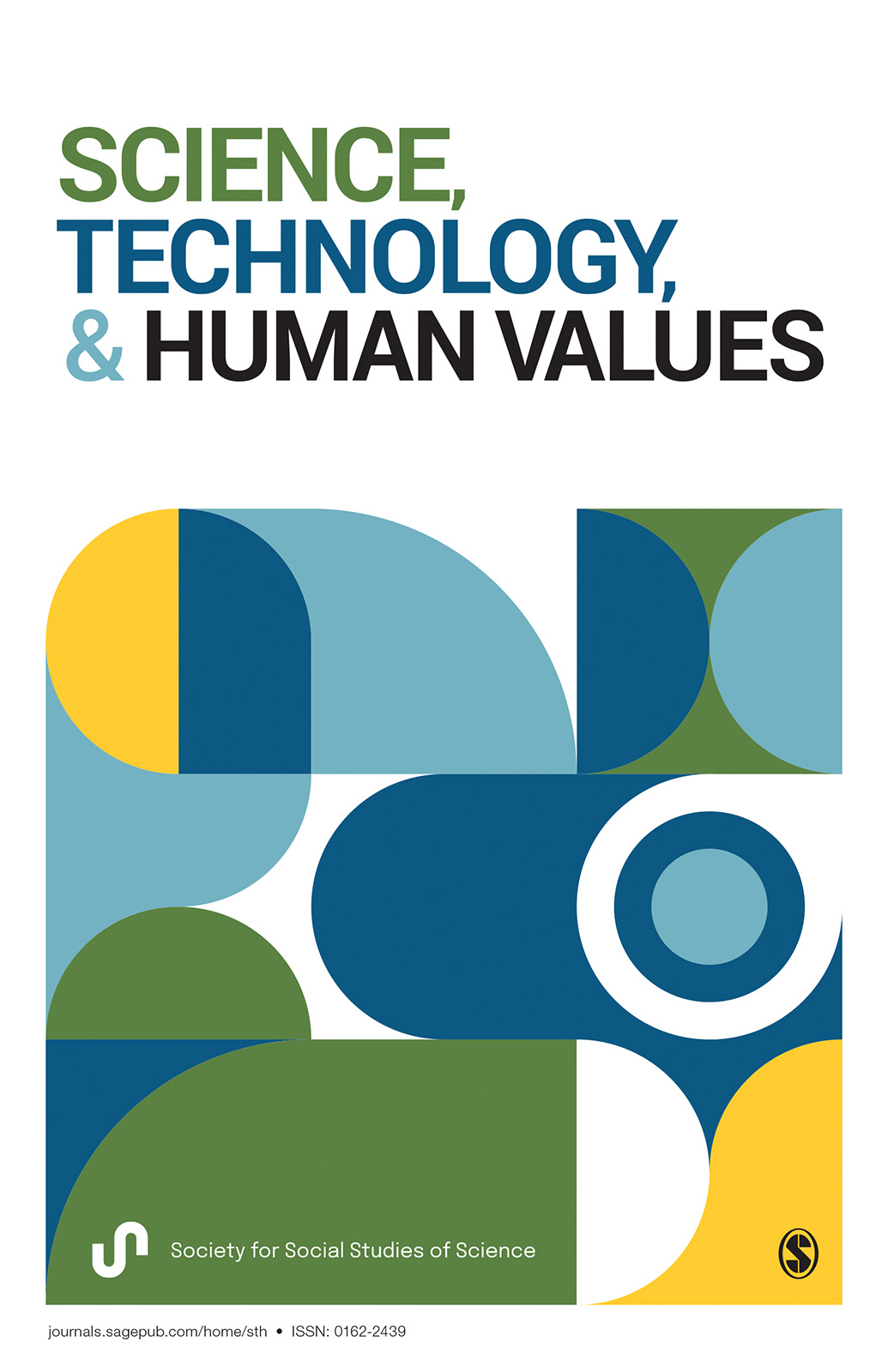

ST&HV publishes and seeks to foster work that is politically and ethically engaged from scholars from across the social sciences and humanities. It is committed to publishing both field-defining and field-extending work, expanding the purview of the field into new areas, and intervening in a common set of conceptual and topical conversations. The journal publishes work that contributes to STS and makes a contribution with STS, emphasising that theory, method and practice unfold in situated assemblages.
To find out more about the journal, read it, or submit your research for consideration, please visit the publisher‘s website.
Special Issues
The editorial group of Science, Technology, & Human Values announces the journal’s 2024 Call for Proposals for Special Issues. The process for this Call for Proposals is:
- Interested scholars should submit a proposal using the Google form by 21 June 2024. All proposals should include a working title for the Special Issue; names, affiliations, and short biographies of guest editors (100 words each); a 800-word outline of the proposed Special Issue theme (approx. 400 words) and its significant contribution to the field of STS (approx. 400 words); and, the names, affiliations, and short abstracts for 3-4 potential contributions. Proposals will be selected on the basis of: a) overall quality; b) the extent to which they represent a field-defining intervention in STS; c) their potential to attract a diverse range of contributions from scholars internationally.
- In August 2024, the editors of ST&HV will choose one Special Issue proposal to proceed. The editors may also select and invite other proposals to proceed as shorter Thematic Collections if suitable.
- The editors of the selected Special Issue proposal(s) will issue an open call for further proposed articles on their theme, closing no earlier than 1 October 2024. A Special Issue will typically contain 7-8 research articles. Diversity of contributions from scholars internationally, and at different career stages, is encouraged.
- The guest editors of the selected Special Issue proposal(s) will submit the full Special Issue for peer review no later than 1 March 2025. Individual manuscripts should be no more than 8,000 words including endnotes and references. Articles that are accepted through peer review will subsequently appear OnlineFirst as ready before the publication of the Special Issue in full, anticipated in 2026.
Please submit your proposal using the Google form by 21 June 2024. All general inquiries should be sent in the first instance to Carolina Caliaba (Managing Editor) at sthvjournal@gmail.com.
You can find out more about ST&HV’s current submission requirements and style guide. For more on what constitutes a contribution to the field of STS, see the editor’s recent editorial: What is an STS Contribution Now?
Recent Publications
Machine's Eye View: Postmodern Data Science and the Politics of Ground Truth
Jathan SadowskiEmerging Technologies Research Lab, Faculty of Information Technology, 2541Monash University, Melbourne, Australia
Science, Technology, & Human Values, Volume 51, Issue 2, Page 251-276, March 2026.
This paper advances the critical analysis of machine learning by placing it in direct relation with actuarial science as a way to further...
Friction and Promise in Data Labor
Minna Ruckenstein, Tuukka Lehtiniemi1Centre for Consumer Society Research, 3835University of Helsinki, Finland
Science, Technology, & Human Values, Volume 51, Issue 2, Page 277-303, March 2026.
This article develops friction as a methodological lens and mobilizes it to examine an unusual data labor arrangement in Finnish prisons....
Constructing Comparability: Climate Change Adaptation and the Transnational Settler Modularity of Desalination
Justin Holmes, Brian F. O’Neill
Science, Technology, & Human Values, Volume 51, Issue 2, Page 337-374, March 2026.
Regarding technology, “modularity” typically refers to an apparatus’ interchangeability, reproducibility, or transposability, i.e.,...
From The Lancet to Duterte: How COVID-19 Scientific Articles Figured in Policy and Public Discourse in the Philippines
Gideon Lasco
Science, Technology, & Human Values, Volume 51, Issue 2, Page 435-472, March 2026.
Throughout the COVID-19 pandemic, political leaders and public health institutions alike invoked “science” and “evidence” in their...
The Gamete Donor Register, Kinship, and Belonging: State-Organized Openness in the Nordic Context of Transnational Egg Donation
Riikka Homanen1Faculty of Social Sciences, 7003University of Lapland, Rovaniemi, Finland
Science, Technology, & Human Values, Volume 51, Issue 2, Page 375-399, March 2026.
Donor conception is an area where increased emphasis on “openness” has produced major changes to legal, medical, and kinship practices....
